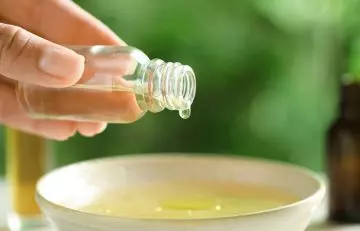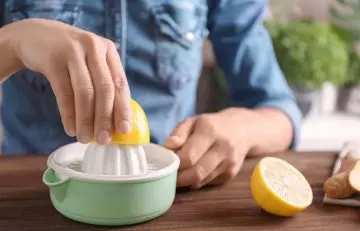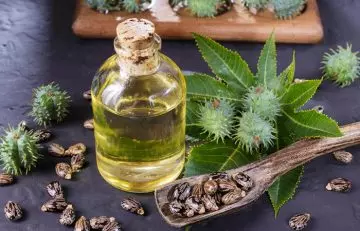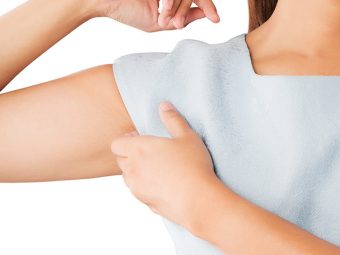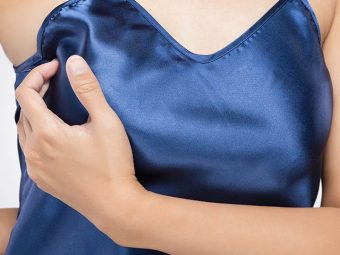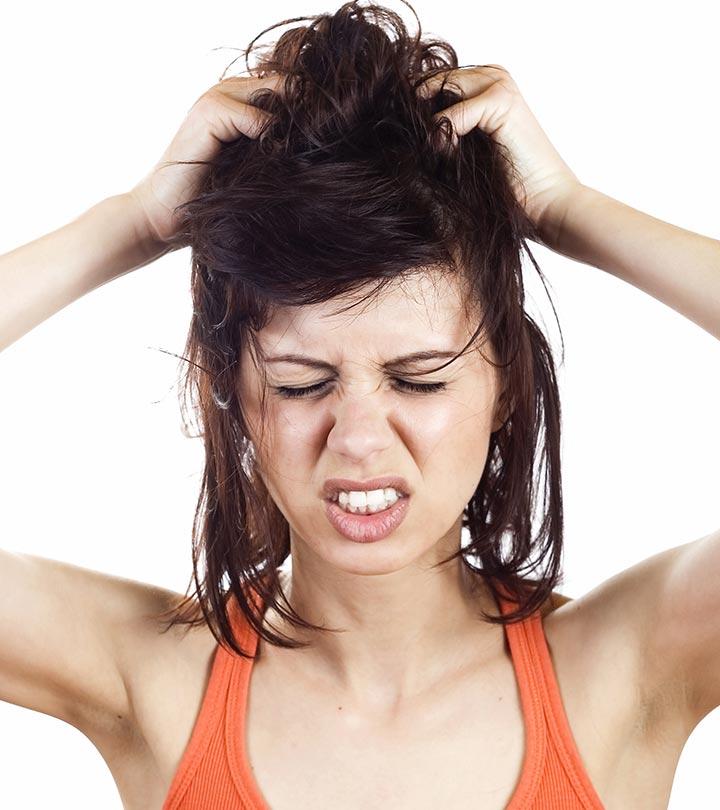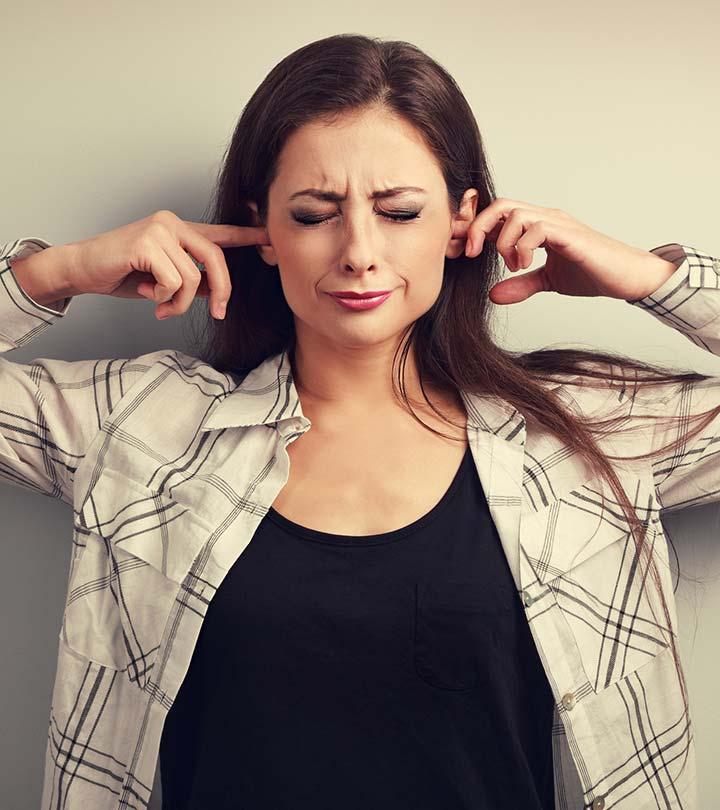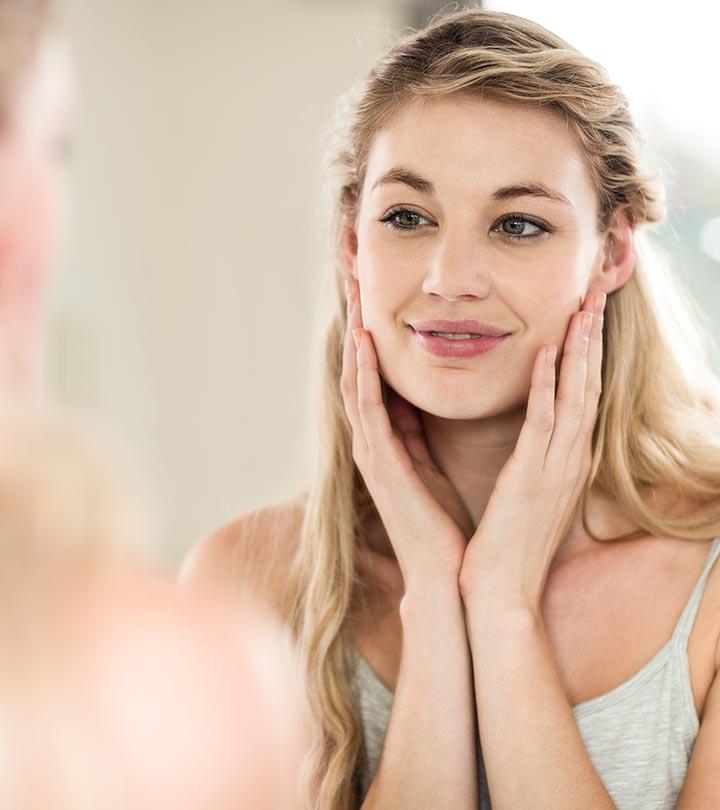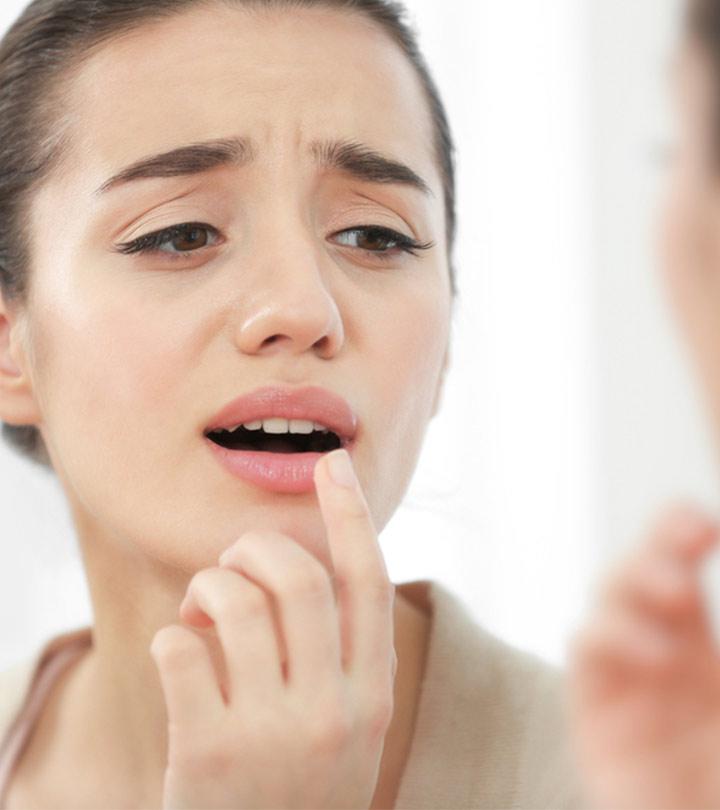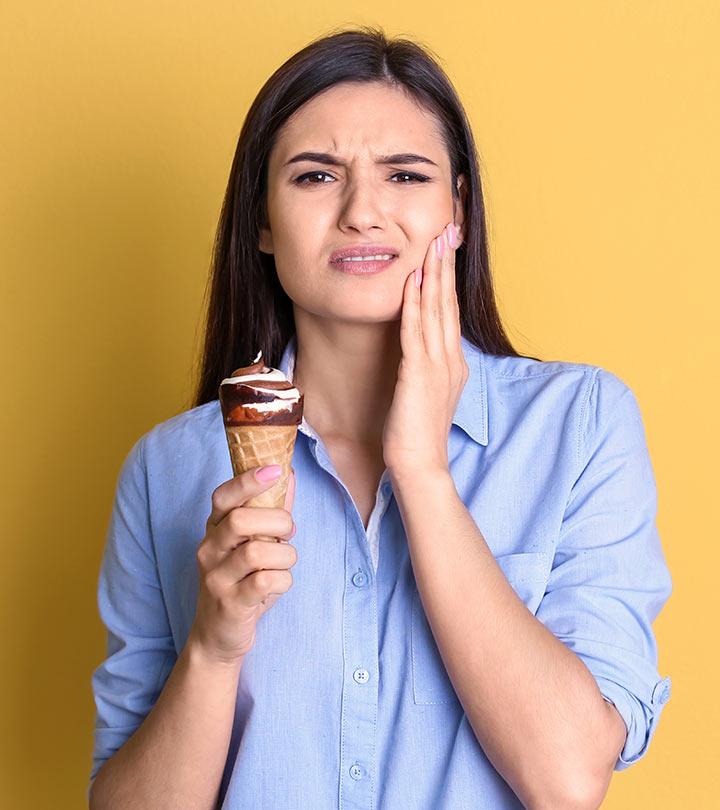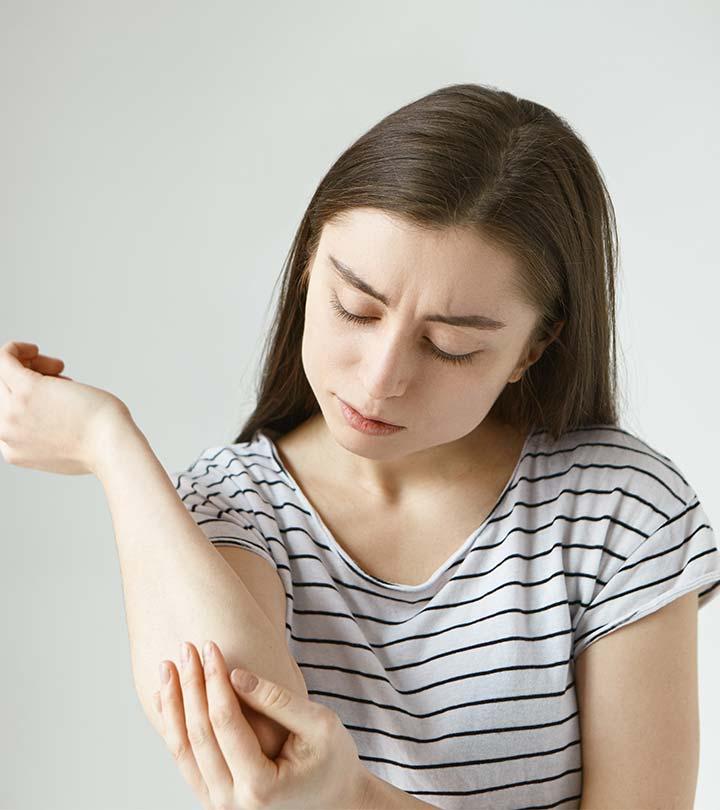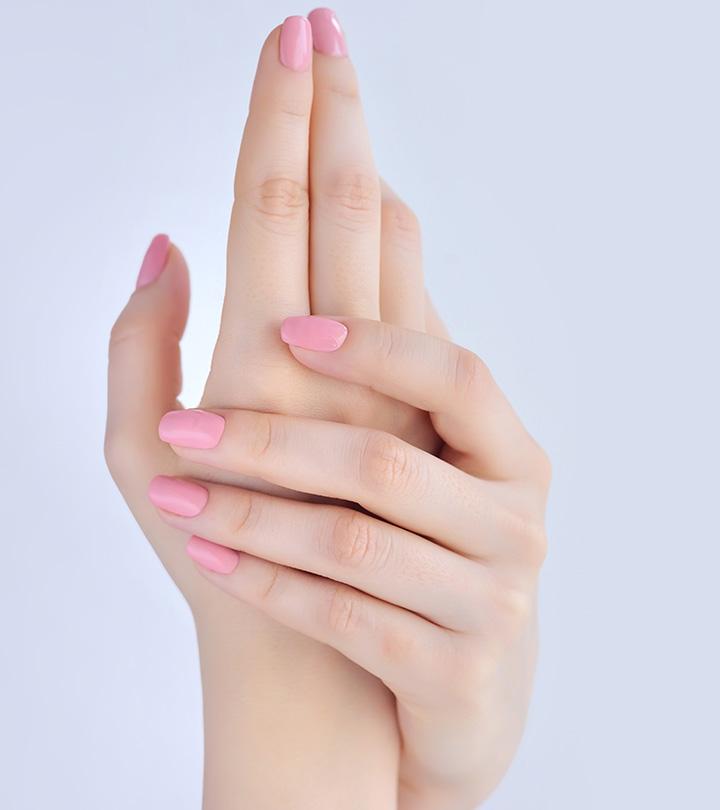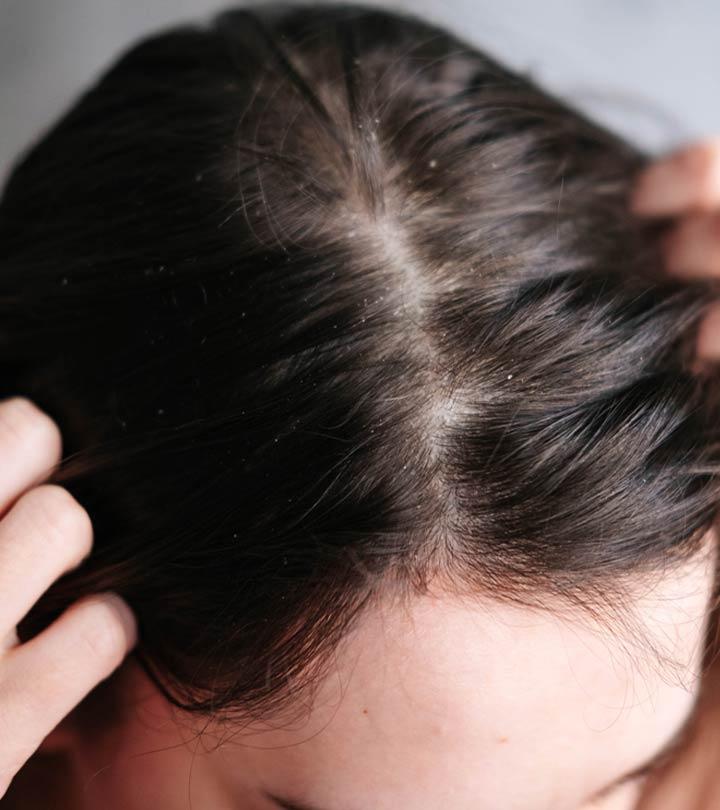How To Get Rid Of Underarm Odor (Smelly Armpits) Naturally
A few common ingredients from your pantry may be the solution to your smelly armpits.

Image: iStock
Sweating profusely after a workout session or any physical activity can lead to your underarms smelling bad. While roaming around with smelly underarms seems unappealing, it’s commonly experienced by many people and is nothing to be embarrassed about. If you are looking to ditch your perfume or deodorants and try something different, you can opt for some natural remedies to help get rid of underarm odor. While antiperspirants and talcum powder are quick solutions and help you stink less throughout your day, they don’t offer you long-term results. In this article, we explore the causes of underarm odor and the 14 remedies you can try at home to say goodbye to underarm odor. Scroll down to know more!
In This Article
What Causes Underarm Odor?
Underarm odor, like body odor, is mainly linked to the apocrine glands.
These glands are often found in the genital area, nipples, armpits, breasts, and ears. While they are responsible for the secretion of milk in the breasts and earwax in the ears, they help in the secretion of sweat in your genital area, nipples, and underarms.
It is the sweat produced by these glands that produces odor. This odor, which may sometimes be foul-smelling, is a result of bacteria breaking down the protein-rich sweat. Lack of cleanliness may not always be the reason for armpit odor. Excessive sweating is a medical condition called hyperhidrosis and requires medical attention.
Underarm odor is also noticed in children, who usually don’t develop foul-smelling body odor. But when they do, it might be due to certain factors or an underlying medical condition. The factors that lead to the development of body odor in children are:
- Precocious pubertyi XA medical condition in which the process of puberty starts early or is accelerated in children, hastening the body’s transformation.
- Fish Odor Syndrome
- Synthetic clothing
- More sweat glands
- Diet that consists of smelly foods like onions
- Medical conditions like diabetes, phenylketonuriai XA birth defect that raises phenylalanine (an amino acid) levels in the blood, creating a musty body odor in urine and sweat. , and hyperhidrosis.
Whatever the cause of your smelly underarms may be, you can manage the problem by following the simple home remedies discussed below.
14 Home Remedies For Underarm Odor
- Apple Cider Vinegar
- Iodine
- Essential Oil
- Witch Hazel Or Tea Tree Oil
- Baking Soda
- Lemon Juice
- Hydrogen Peroxide
- Coconut Oil
- Garlic
- Aloe Vera
- Boric Acid
- Castor Oil
- Epsom salt
- Potato
1. Apple Cider Vinegar
Apple cider vinegar has antimicrobial properties (1). This can neutralize the environment in the underarm area and helps in the destruction of the odor-causing bacteria. Regular use of apple cider vinegar can also help in preventing the accumulation of bacteria and maintain skin freshness.
You Will Need
- A small bowl of apple cider vinegar
- Cotton balls
What You Have To Do
- Take some apple cider vinegar in a small bowl.
- Dip a cotton ball in this and apply it directly to your underarms.
How Often You Should Do This
Do this twice daily – every morning after a bath, and every night before going to bed.
Emily, a lifestyles YouTuber, shared her journey transitioning to natural deodorant and her experience following an armpit detox. After using deodorants, she developed painful underarm bumps. She decided to try an armpit detox with bentonite clay and apple cider vinegar that improved her situation remarkably. She says, “I did this mask and it has worked wonders. To make this simple concoction, we have our bentonite clay. And you do 1 tablespoon…and 2 teaspoons of apple cider vinegar (i).”
2. Iodine
Iodine has bactericidal and antiseptic properties (2). It can help in sterilizing your armpits and restoring their pH. This remedy can help in getting rid of foul-smelling underarms over time.
You Will Need
- A few drops of iodine
- A soft brush
What You Have To Do
- Take a few drops of iodine and apply it to both the underarms.
- Scrub your underarms gently with a soft brush.
- Leave the mixture on for about 3 minutes after scrubbing and then go ahead with your shower.
How Often You Should Do This
Do this once daily.
3. Essential Oils
a. Lavender Essential Oil
Lavender oil is used to treat various skin and health issues. Its pleasant fragrance helps mask the odor, and its antibacterial properties kill the bacteria present in the underarms (3), (4).
You Will Need
- 4-5 drops of lavender essential oil
- 1 glass of water
What You Have To Do
- Add a few drops of lavender essential oil to a glass of water.
- Pour this into a spray bottle and spray directly on your underarms.
- Alternatively, you can also mix lavender oil with any carrier oil and apply it to your underarms.
How Often You Should Do This
Do this twice daily.
b. Tea Tree Oil
Tea tree oil is one of the best remedies to combat underarm odor. It has astringent and antimicrobial properties (5), (6). It can help minimize the pores in your underarms and fight the odor-causing bacteria in the area.
Caution: Tea tree oil is extremely potent and can cause skin redness and irritation. Do a patch test before using this remedy.
You Will Need
- 2 drops of tea tree oil
- 2 tablespoons of water
- Cotton pads
What You Have To Do
- Add two drops of tea tree oil to two tablespoons of water.
- Using a cotton pad, apply this mixture to both your underarms.
- You can also add a few drops of tea tree oil to a bottle of water and use it as a spray.
How Often You Should Do This
Do this twice daily for effective results.
Other essential oils can also help combat body odor. Peppermint oil has antiseptic properties, cools the skin, and has a refreshing scent. For a light herbal scent, you can use eucalyptus oil. For a stronger fragrance, thyme oil has a medicated scent. You can try rosemary oil and sage oil for earthy fragrances. Use essential oils in the recommended concentration based on your skin type to prevent irritation.
4. Witch Hazel
Witch hazel is another great remedy that works as a natural antiperspirant. It has astringent and antibacterial properties (7). It can help lower the pH of your skin, thereby killing the odor-causing bacteria and combating underarm odor.
You Will Need
- A few drops of witch hazel
- Cotton balls
What You Have To Do
- Take a few drops of witch hazel on a cotton ball and apply it directly to your underarms.
- Alternatively, you can mix a few drops of witch hazel in water and use it as a natural antiperspirant.
How Often You Should Do This
Do this every morning and evening.
5. Baking Soda
Baking soda can help in keeping your underarms dry and sweat-free. Its antibacterial properties can help fight the bacteria that cause the foul smell (8), (9).
You Will Need
- 1 tablespoon of baking soda
- 1 tablespoon of lemon juice
What You Have To Do
- Mix baking soda and lemon juice in equal quantities.
- Apply it directly to your underarms and leave it on for about 2 to 3 minutes.
- Take a shower.
Note: This method has a high rate of irritation in some patients .
How Often You Should Do This
Do this once daily for a few weeks.
 Quick Tip
Quick Tip6. Lemon Juice
Lemons are highly acidic and possess bactericidal properties (10), (11). This can help reduce the pH of your skin and also makes it uninhabitable for the odor-causing bacteria.
You Will Need
1/2 lemon
What You Have To Do
- Take half a lemon and rub it directly on your underarms.
- Leave the juice on until it dries and then wash it off with water.
- If you have sensitive skin, you can mix the juice of half a lemon with half a cup of water and apply the mixture to your underarms using a cotton ball.
Note: This might not suit everyone and may cause irritation.
How Often You Should Do This
Do this once daily.
 Quick Tip
Quick TipSarah Tran, an active and positive life vlogger, discussed her preferred method for a natural deodorant substitute that she has been using for over nine months. She used lemon on their armpits to fight body odor. She said, “Ever since I have been on this lemon method, and I know that I don’t stink on it even though I do still sweat with it (ii).”
7. Hydrogen Peroxide
Hydrogen peroxide is widely used for its antiseptic properties (12). It can kill the bacteria that are causing your underarms to stink.
You Will Need
- 1 teaspoon of 3% hydrogen peroxide
- 1 cup of water
- Cotton pads
What You Have To Do
- Take a teaspoon of 3% hydrogen peroxide and add it to a cup of water.
- Soak a cotton pad in this solution and wipe your underarms with it.
How Often You Should Do This
You can do this whenever you sweat profusely.
8. Coconut Oil
Coconut oil contains medium-chain fatty acids, which are powerful antimicrobial agents (13), (14). It can keep the odor-causing bacteria at bay and restore the pH of your skin.
You Will Need
Coconut oil (as required)
What You Have To Do
- Take some coconut oil on your fingers and apply it directly to your underarms.
- Leave it on until it is absorbed.
Note: Do not opt for this method if you have a prior fungal infection.
How Often You Should Do This
Do this 1 to 2 times daily, preferably just after taking a bath.
9. Garlic
As surprising as it may sound, garlic consumption may reduce body odor (15). This could probably be due to its excellent antimicrobial and antioxidant properties.
You Will Need
Garlic (as required)
What You Have To Do
- Chew on some garlic cloves every day.
- If the strong flavor bothers you, just add some minced garlic to your daily diet.
- You may also consider taking garlic supplements after consulting your doctor.
How Often You Should Do This
Do this daily.
10. Aloe Vera
Aloe vera is a rich source of antioxidants and has antibacterial properties (16). This makes it one of the best remedies for eliminating underarm odor. While aloe vera juice can help detox your body and reduce the foul-smelling odor, its topical application can eliminate the bacteria responsible for causing smelly underarms (17).
You Will Need
Aloe vera gel (as required)
What You Have To Do
- Take a little aloe vera gel on your fingers and apply it directly to your underarms.
- Leave it on overnight and wash it off the next morning.
- You can also drink about one-fourth cup of aloe vera juice daily.
How Often You Should Do This
Do this once daily.
11. Boric Acid
Boric acid is acidic and bacteriostatic (18), (19). It can reduce the pH of your skin, thus making the survival of bacteria difficult. This can prove to be quite helpful in getting rid of foul-smelling underarms.
You Will Need
Boric acid (as required)
What You Have To Do
Take a little boric acid and dust it on your underarms daily.
How Often You Should Do This
You can do this 1 to 2 times a day, preferably after a shower.
12. Castor Oil
Castor oil is derived from the castor plant and is used for its wide range of benefits. One of its surprising benefits is its ability to reduce foul-smelling odor. The credit for this could be given to the antibacterial properties it possesses (20). This can keep the odor-causing bacteria at bay.
You Will Need
Castor oil
What You Have To Do
- Take some castor oil and apply it to both the underarms.
- Leave it on overnight and wash it off the next morning.
Note: Do not opt for this method if there is a fungal infection.
How Often You Should Do This
Do this daily.
13. Epsom Salt
Epsom salt usually promotes perspiration to help your body release any toxins that could be responsible for causing foul body odor (21). It also helps eliminate odor (22).
You Will Need
- 1 cup of Epsom salt
- Bathwater
What You Have To Do
- Add a cup of Epsom salt to your bathwater.
- Soak in the water for 15 to 20 minutes.
How Often You Should Do This
You can do this every alternate day.
14. Potato
Potatoes can help control perspiration and also kill the bacteria present in your underarms by lowering the pH of your skin. This is because potatoes are slightly acidic and possess antimicrobial properties (23), (24).
You Will Need
1 potato
What You Have To Do
- Take a potato and cut it into thin slices.
- Rub a slice directly on your underarms and allow it to dry.
- Apply your deodorant over it.
How Often You Should Do This
You can do this 1 to 2 times daily.
How To Stop Smelling Bad
- Shower at least once daily.
- Use a good antibacterial soap.
- Use freshly laundered towels after each bath.
- Use a good deodorant or antiperspirant.
- Opt for natural clothing made of wool or cotton.
- Wear loose-fitted and moisture-wicking clothes.
- Keep your underarm hair trimmed. This can significantly reduce armpit smell (25).
- Stay away from smelly foods like curries.
- Avoid onions as they have a strong smell.
- Consume more fruits, vegetables, chicken, and fish.
- Drink lots of water.
When To See A Doctor
Dr. Vladyslava Doktor, a board-certified dermatologist, says, “When one experiences other systemic symptoms besides increased sweating or when the sweat has suddenly increased, consider it time to consult your doctor.”
Despite using multiple treatments, remedies, and tips, if the underarm odor persists, seek medical help. Consult a dermatologist to know the underlying cause of the condition.
Medical treatment for underarm odor is available for individuals experiencing persistent and severe issues. Learn more about it below.
Medical Treatment For Underarm Odor
- Prescription Antiperspirants: These contain higher levels of aluminum chloride that may effectively reduce sweating and odor.
- Botulinum Toxin Injections: These injections block sweat glands temporarily, reducing perspiration and associated odor.
- Iontophoresis: This procedure involves using a low electrical current to reduce sweat production.
- Prescription Medications: Experts prescribe oral medications like anticholinergics to decrease sweating.
- Surgery: Doctors may consider surgical procedures like sweat gland removal or sympathectomy in severe cases.
In many cases, lifestyle changes and over-the-counter solutions are enough to manage underarm odor. However, it is important to consult a doctor to get a proper diagnosis and treatment plan.
Infographic: 5 Best Natural Ways To Bid Farewell To Armpit Odor
Smelly armpits can be annoying and embarrassing in a social or personal gathering. There are multiple natural ingredients inside your pantry that can help get rid of this bad armpit odor. Use these ingredients once or twice every day to experience the change in body odor.
Check out the infographic below to know the top five natural ways to get rid of armpit odor effectively. Illustration: StyleCraze Design Team
Your body sweats naturally, however, if bacteria break down the compounds present in your sweat, a foul smell may arise. There are many reasons you may experience underarm odor ranging from dietary reasons to underlying medical conditions. This issue can be solved with a natural antibacterial, antiseptic agent that is pleasant-smelling and reduces the presence of bacteria in your armpits. Follow these easy home remedies to get rid of underarm odor and pair them with a grooming routine to smell good. In the event that your problem persists, make sure you consult your healthcare provider to diagnose the underlying cause.
Frequently Asked Questions
Does underarm odor get worse as you age?
Dr. Vladyslava Doktor says, “Actually, no, as we sweat less as we age. This is because the sweat glands decrease in size, and our hormone levels fluctuate, typically towards the lower end of the spectrum.”
What does it mean when your body odor changes?
If your odor smells different, it could hint at an underlying medical condition. A sweet-smelling odor could be a sign of diabetes due to high levels of ketones in your blood, while a bleach-like smell could be an indication of liver or kidney disease.
Which soap works best for underarm odor?
You can use any skin-friendly antibacterial or deodorant soap to get rid of underarm odor. The deodorant products that have citrus extracts can help reduce the armpit smell effectively.
What diseases can cause bad body odor?
Medical conditions that are known to cause bad body odor are:
• Diabetes
• Thyroid problems
• Kidney or liver dysfunction
• Genetic disorders like trimethylaminuriai XA rare genetic medical condition that creates a fishy smell in the urine, sweat, reproductive fluids, and breath. (26)
Does dry skin affect your odor?
Dry skin rarely causes body odor. In fact, when your skin is dry, it becomes harder for the bacteria that are living on your skin to break down your sweat into acids.
Is armpit odor sexually attractive?
Yes, certain body odors are indeed connected to sexual attraction. Humans subconsciously choose a potential mate based on body odor.
How do I permanently get rid of the underarm odor?
Knowing how to remove the smell from underarms permanently is not possible as there is no one-time solution for body odor. You need to regularly maintain your hygiene and follow your favorite natural remedies to ensure body odor is minimized.
What bacteria causes armpits to smell?
The bacterium Staphylococcus hominis is responsible for armpit odor. It contains an enzyme called C-T lyase, which converts odorless chemicals in the sweat to pungent compounds called thioalcohols (27),(28).
Can I leave lemon juice on my underarm overnight?
While you may, avoid doing so as the acidic nature of lemon may irritate your skin. It may also cause dark patches on your underarms if you expose them to sunlight the following morning.
Key Takeaways
- Eating smelly foods and diabetes are a few causes of underarm odor.
- The antimicrobial properties of apple cider vinegar may help neutralize underarm odor.
- Lemon juice possesses acidic and antibacterial properties that can help get rid of the underarm odor-causing bacteria.
- Maintain good hygiene by showering regularly and using antiperspirant deodorants.
Learn how to get rid of body odor and prevent smelly armpits. Watch this helpful video for tips and tricks that will keep you smelling fresh and pleasant all day!
Personal Experience: Source
StyleCraze's articles are interwoven with authentic personal narratives that provide depth and resonance to our content. Below are the sources of the personal accounts referenced in this article.
i. How I detoxed my arm pits and stopped smelling (my natural deodorant journey),
https://www.youtube.com/watch?v=wv3Bfzx1-fA
ii. DIY | Naturally get rid of body odor!,
References
Articles on StyleCraze are backed by verified information from peer-reviewed and academic research papers, reputed organizations, research institutions, and medical associations to ensure accuracy and relevance. Read our editorial policy to learn more.
- Vinegar: Medicinal Uses and Antiglycemic Effect, Medscape General Medicine, US National Library of Medicine, National Institutes of Health.
https://www.ncbi.nlm.nih.gov/pmc/articles/PMC1785201/ - Antiseptics and Disinfectants: Activity, Action, and Resistance, Clinical Microbiology Reviews, US National Library of Medicine, National Institutes of Health.
https://www.ncbi.nlm.nih.gov/pmc/articles/PMC88911/#B184 - Biological activities of lavender essential oil, Phytotherapy Research, US National Library of Medicine, National Institutes of Health.
https://www.ncbi.nlm.nih.gov/pubmed/12112282 - Aromatherapy With Essential Oils (PDQ®), PDQ Integrative, Alternative, and Complementary Therapies Editorial Board, US National Library of Medicine, National Institutes of Health.
https://www.ncbi.nlm.nih.gov/books/NBK65820/ - Melaleuca alternifolia (Tea Tree) Oil: a Review of Antimicrobial and Other Medicinal Properties, Clinical Microbiology Reviews, US National Library of Medicine, National Institutes of Health.
https://www.ncbi.nlm.nih.gov/pmc/articles/PMC1360273/ - A review of applications of tea tree oil in dermatology, International Journal of Dermatology, US National Library of Medicine, National Institutes of Health.
https://www.ncbi.nlm.nih.gov/pubmed/22998411 - Antioxidant and potential anti-inflammatory activity of extracts and formulations of white tea, rose, and witch hazel on primary human dermal fibroblast cells, Journal of Inflammation, US National Library of Medicine, National Institutes of Health.
https://www.ncbi.nlm.nih.gov/pmc/articles/PMC3214789/ - Antimicrobial Activity of Sodium Bicarbonate, Journal of Food Science, Wiley Online Library
https://www.ncbi.nlm.nih.gov/pubmed/18388369 https://onlinelibrary.wiley.com/doi/abs/10.1111/j.1365-2621.1988.tb09005.x - Antibacterial activity of baking soda, Compendium of Continuing Education in Dentistry, US National Library of Medicine, National Institutes of Health.
https://www.ncbi.nlm.nih.gov/pubmed/12017929 - Phytochemical, antimicrobial, and antioxidant activities of different citrus juice concentrates, Food Science & Nutrition, US National Library of Medicine, National Institutes of Health.
https://www.ncbi.nlm.nih.gov/pmc/articles/PMC4708628/ - Bactericidal activity of lemon juice and lemon derivatives against Vibrio cholerae, Biological & Pharmaceutical Bulletin, US National Library of Medicine, National Institutes of Health.
https://www.ncbi.nlm.nih.gov/pubmed/11041258 - Hydrogen Peroxide: A Potential Wound Therapeutic Target? Medical Principles and Practice, Health Science Centre, US National Library of Medicine, National Institutes of Health.
https://www.ncbi.nlm.nih.gov/pubmed/28384636 - Anti-Inflammatory and Skin Barrier Repair Effects of Topical Application of Some Plant Oils, International Journal of Molecular Sciences, US National Library of Medicine, National Institutes of Health.
https://www.ncbi.nlm.nih.gov/pmc/articles/PMC5796020/ - Virgin Coconut Oil and Its Antimicrobial Properties against Pathogenic Microorganisms: A Review, Journal of Research in Health Sciences, ResearchGate.
https://www.researchgate.net/publication/323655849_Virgin_Coconut_Oil_and_Its_Antimicrobial_Properties_against_Pathogenic_Microorganisms_A_Review - Consumption of garlic positively affects hedonic perception of axillary body odour, Appetite, US National Library of Medicine, National Institutes of Health.
https://www.ncbi.nlm.nih.gov/pubmed/26551789 - Antibacterial activities and antioxidant capacity of Aloe vera, Organic and Medicinal Chemistry Letters, US National Library of Medicine, National Institutes of Health.
https://www.ncbi.nlm.nih.gov/pmc/articles/PMC3729540/ - Are biopolymers potential deodourising agents in wound management? Journal of Wound Care, US National Library of Medicine, National Institutes of Health.
https://www.ncbi.nlm.nih.gov/pubmed/19827482 - Bacteriostatic and bactericidal actions of boric acid against bacteria and fungi commonly found in urine, Journal of Clinical Pathology, US National Library of Medicine, National Institutes of Health.
https://www.ncbi.nlm.nih.gov/pubmed/2116453 - BASIC study: is intravaginal boric acid non-inferior to metronidazole in symptomatic bacterial vaginosis? Study protocol for a randomized controlled trial, Trials, US National Library of Medicine, National Institutes of Health.
https://www.ncbi.nlm.nih.gov/pmc/articles/PMC4514959/ - Characterization and evaluation of antibacterial and antiproliferative activities of crude protein extracts isolated from the seed of Ricinus communis in Bangladesh, BMC Complementary and Alternative Medicine, US National Library of Medicine, National Institutes of Health.
https://www.ncbi.nlm.nih.gov/pmc/articles/PMC4942971/ - The Use Of Epsom Salts, Historically Considered, Canada Medical Association Journal, US National Library of Medicine, National Institutes of Health.
https://www.ncbi.nlm.nih.gov/pmc/articles/PMC1584988/pdf/canmedaj00347-0031.pdf - Pharmaceutical Influences of Epsom Salts, American Journal of Pharmacology and Pharmacotherapeutics.
https://www.ncbi.nlm.nih.gov/pmc/articles/PMC2135706/ http://www.imedpub.com/articles/pharmaceutical-influences-of-epsom-salts.php?aid=23254 - Antimicrobial activity of potato juice, ResearchGate.
https://www.researchgate.net/publication/270577040_Antimicrobial_activity_of_potato_juice - Antimicrobial activity of potato aspartic proteases (StAPs) involves membrane permeabilization, Microbiology, US National Library of Medicine, National Institutes of Health.
https://www.ncbi.nlm.nih.gov/pubmed/16804179 - A comparative clinical study of different hair removal procedures and their impact on axillary odor reduction in men, Journal of Cosmetic Dermatology, US National Library of Medicine, National Institutes of Health.
https://www.ncbi.nlm.nih.gov/pmc/articles/PMC4793925/ - Trimethylaminuria, Genetics Home Reference, US National Library of Medicine, National Institutes of Health.
https://medlineplus.gov/genetics/condition/trimethylaminuria - Understanding the microbial basis of body odor in pre-pubescent children and teenagers, Microbiome Journal, BioMed Central.
https://microbiomejournal.biomedcentral.com/articles/10.1186/s40168-018-0588-z - The molecular basis of thioalcohol production in human body odour, Scientific reports, Nature.
https://idp.nature.com/authorize?response_type=cookie&client_id=grover&redirect_uri=https%3A%2F%2Fwww.nature.com%2Farticles%2Fs41598-020-68860-z





